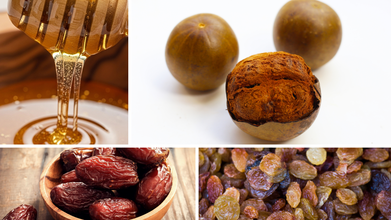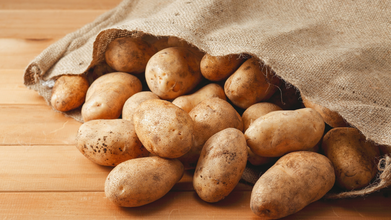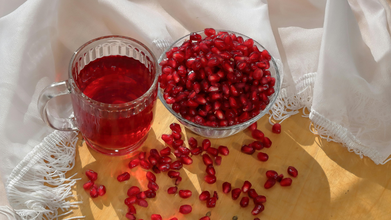- Health Conditions A-Z
- Health & Wellness
- Nutrition
- Fitness
- Health News
- Ayurveda
- Videos
- Medicine A-Z
- Parenting
5 Nutrient-Rich Foods You Need Your Diet For Stronger Bones

5 Nutrient-Rich Foods You Need Your Diet For Stronger Bones
Healthy bones play an important role in overall health and mobility, especially when we age. If you consume a balanced amount of bone-friendly nutrients – such as calcium, vitamin D, magnesium, and phosphorus – your bone health will improve significantly. Here are the five food items that you should include in your daily diet to support bone health:
1. Dairy Products
The best sources of calcium include milk, yogurt, and cheese-all of which are dairy products. These food items play a vital role because they deliver structural strength to bones and teeth, and they are also required for muscle function and nerve signaling.
Tip: Select low-fat or fortified if calorie-saving matters to you. If you are lactose intolerant, select lactose-free milk or fortified plant-based alternatives such as almond or soy milk .
2. Leafy Green Vegetables
Vegetables like spinach, kale, collard greens, and broccoli are rich in calcium, magnesium, and vitamin K, which help in bone mineralization. Vitamin K, in particular, supports bone health by modifying bone proteins and improving calcium absorption.
Tip: Steam or lightly cook leafy greens to maximize nutrient retention and enhance absorption.
3. Fatty Fish
Fatty fish includes salmon, mackerel, sardines, which are full of vitamin D and omega-3 fatty acids. Vitamin D is essential to the body since it enhances the absorption of calcium. The omega-3 fatty acids work at reducing bone loss and inflammation in the body.
Tips and Recommendations
- Take two servings of fatty fish per week
- If fresh cannot be obtained then canned ones like sardines with bones will do.
4. Nuts and Seeds
Almonds, walnuts, chia seeds, and flaxseeds are particularly high in magnesium, phosphorus, and omega-3 fatty acids – all of which contribute to healthy and strong bones. Magnesium activates vitamin D, which increases the absorption of calcium, and phosphorus is part of the matrix that comprises bone tissue.
Tip: Incorporate a handful of nuts or a tablespoon of seeds into your snacks, smoothies, or salads for a nutrient boost.
5. Fortified Foods
Many foods, such as cereals, orange juice, and tofu, are fortified with calcium and vitamin D to support bone health. These are particularly beneficial for individuals who may struggle to meet their nutritional needs through natural sources alone.
Tip: Check labels to ensure adequate levels of fortification and avoid products with excessive added sugar.
Additional Tips for Bone Health
- Exercise Regularly: Engage in weight-bearing exercises like walking, jogging, or yoga to improve bone density.
- Limit Caffeine and Alcohol: Excessive intake of these can interfere with calcium absorption.
- Get Enough Sunlight: Your body synthesizes vitamin D through sunlight.
Consuming these nutrient-enriched foods in your diet, and adopting a holistic approach to life build and maintain healthy bones, thus reducing the onset of osteoporosis and chances of fractures. Your bones work day and night for you; now it’s your turn to help them out.
Why You Should Use Moringa Sanitary Pads, Expert Reveals

(Photos: Canva)
Pads are made of synthetic fibres that cause rashes and bacterial infections that further lead to serious problems such as Reproductive Tract Infections, skin irritation, Urinary Tract Infections and Bacterial Vaginosis.
Every month millions of synthetic pads are discarded and many suffer from serious menstrual hygiene problems. Officials note that about 70 percent of reproductive diseases in India are linked to poor menstrual hygiene, affecting nearly 120 million adolescent girls.
Dr Richa Singhal, senior consultant, obstetrics and gynaecology, at Cloud Nine Hospital in Delhi's Patparganj notes: ''A sanitary pad's top-sheet contacts sensitive intimate skin for several days each month."
Poor hygiene, such as reusing unclean cloths or not changing materials frequently, causes infections and itching, rashes, foul odor can increase the chances of cervical cancer.
Here are some alternatives that can replace synthetic pads and prevent serious health issues:
Moringa PadsMoringa, also known as miracle tree, can be consumed in the form of powder, leaves or tablets. Used for its medicinal properties, it has as a 5,000-year history, deeply rooted in Ayurveda for medicinal use.
In modern times, gynaecologists recommend moringa based pads to reduce the risk of urinary tract infections, bacterial vaginosis and yeast infections during menstruation.
It is known for its antimicrobial, anti-inflammatory and antioxidant properties which make it suitable for intimate areas and menstrual care.
Packed with high levels of Vitamin E and fatty acids which strengthen skin barriers and prevent chafing, viable for those who have extended periods. Rich in bioactive compounds, it supports vaginal health by balancing PH level making it suitable for menstrual pads.
These pads can reduce the risk of skin infections, UTIs and yeast infections.
Cotton Reusable Pads
These are eco-friendly as they are made from layers of absorbent cotton, bamboo, or fabric. Contrary to synthetic pads, these are good for your skin and prevent rashes caused from synthetic materials.Period Underwear
Serving as a reusable and sustainable alternative, period under wears keep you dry and comfortable for hours without causing you infectionsThis Natural Fruit Can Replace Sugar On Your Table

Natural Sweeteners (Photos: Canva)
The switch from white sugar to natural sweeteners like honey, dates and coconut sugar are becoming popular as people grow more away of the side effects of refined sugar.
Among these, monk fruit stands out as a low-calorie alternative that supports metabolic health.
According to National Institutes of Health, consuming white sugar results in allergic reactions and severe metabolic effects and cardiovascular effects. Medical conditions like diabetes, obesity, and fatty liver diseases.
Monk fruit
Monk fruit extract is obtained from the 'Siraitia grosvenorii' plant, which is native to China. It provides a calorie-free alternative to sugar, rich in antioxidants, ideal for weight management and reducing inflammation.Monk fruit sweeteners are produced by removing the seeds and skin, crushing the fruit, and then extracting its sweet portions into liquid and powdered forms. Its extracts are being used in sweeteners, packaged foods and beverages.
The International Food Information Council recommends this fruit-based sweetener to diabetic individuals to satisfy their desire for sweet taste while managing sugar intake.
Which Other Natural Sweeteners Can You Use?
Natural sugar is the naturally occurring sweetness in food, they are derived from natural sources like plants, fruits or tree ap, rather than being refined chemically.
They are packed with nutrients that help offset some of the negative aspects of the sugar content. They are comparatively less processed and contain lower glycemic acid which prevents sudden blood sugar spikes.
The key is not eliminating sugar from your diet but replacing it with healthier options like:
1. Fruit JuiceFruit juice is a healthier alternative when made without preservatives or added sugars, but fibre content is low compared to raw fruit.
Bananas, berries and mangoes are good as fruits that contain natural sweetness, they are packed with nutrients that boost immunity.
2. Honey and Maple Syrup
Honey, molasses and maple syrup contain natural sugar and nutritional benefits. These foods are filled with antioxidants and antibacterial properties that help stabilise gut health.They act as an effective cough remedy and can be added to oatmeal, yogurt or act as a substitute of sugar in tea and coffee. It also helps in lowering blood pressure and stabilizing digestive health.
3. Dates and Rasins
Known to be energy boosters, dates and raisins are rich sources of glucose and fructose, making them an excellent pre-workout snack. Their high fibre content is also good for maintaining digestive health.Whole or powdered dates can be added to hot milk or even cakes to make them healthier.
6 Foods That Helps You With Muscle Recovery

Credits: Canva
When you lift heavy or workout, you feel like your muscles have been strained, this is because before you muscles are build, there are small muscle ruptures. More than exercise, what matters is what you eat to help you muscles recover. The process is called hypertrophy, when intentional, controlled micro-tears caused by resistance training trigger the body to repair and strengthen muscle fibers. This process requires a specific cycle of damage, rest, and nutrition to be effective.
University of North Carolina Health Wellness Services manager and a certified personal trainer Kathy DeBlasio also explains, "You make microtears in your muscles when you work them. As you heal, you gain muscle and strength." She explains that these tiny tears cause you to feel pain, but they heal within 24 to 48 hours. What matters the most is your diet. There are different foods that help you recover your muscles. Here is a list of 6 foods for you to consume for muscle recovery.
Chicken

Duke Health notes that chicken breast is a lean source of high-quality protein essential for repairing and building muscles. It is also rich in amino acids, especially leucine, which is important for muscle synthesis. A 2024 study in Physiological Reports, noted that chicken intake, combined with resistance training on muscle mass has helped improve strength and muscle mass of elderly women.
Cottage Cheese

Registered dietitian Maddie Pasquariello, RD told Paloton, “Cottage cheese can be a very nutritious addition to your diet from both a macro- and micronutrient standpoint." Pasquariello explained that half-cup serving of full-fat cottage cheese packs around 13 grams of protein. It helps as a building block of muscles, bones, cartilage, skin, hair, and nails. It also helps build and repair tissue. It oxygenates red blood cells to nourish your body with nutrients, helps regulate hormones, supports the production of enzymes used to digest food and create new cells. It also helps in repairing and building muscles.
Potatoes

A 2022 study published in the journal Medicine & Science in Sports & Exercise (MSSE) notes that that potatoes contain a 1.5 per cent protein based on their based on their fresh weight. However, when potatoes are used for starch extraction, a residue remains, that can be used to extract potato protein. Ingestion of 30 g potato protein concentrate increases muscle protein synthesis rates both at rest and during recovery from exercise.
Read: 14 Drinks Or More A Week Could Increase You Risk Of Colon Cancer By 25%
Pomegranate Juice

A 2016 study published in PLOS One notes that pomegranate supplementation accelerates recovery of muscle damage and soreness and inflammatory markers after a weightlifting training session. The study notes: "optimal dose of pomegranate supplementation, showed that either once-daily or twice-daily dietary pomegranate juice supplementation improves strength recovery of both leg and arm muscles after an unaccustomed eccentric exercise."
Eggs

Natalie Rizzo, MS, RD, a registered dietitian, specializing in sports writes: "Eggs have a unique nutrition profile that is great for athletes of all ages. While they make a nice addition to any meal of the day, the nutrients in eggs can help with recovery after exercise."
Fatty Fish

A 2024 study published in Clinical Nutrition ESPEN notes that omega-3 fatty acids in fatty fish could help increase muscle strength, however it does not increase in muscular mass. The study notes: "The interventions of omega-3 fatty acids supplementation and resistance training show promise as a countermeasure against muscular dysfunction."
© 2024 Bennett, Coleman & Company Limited

